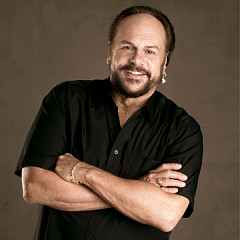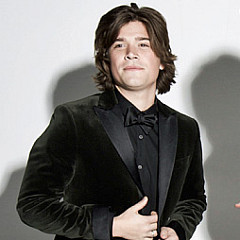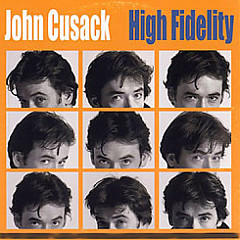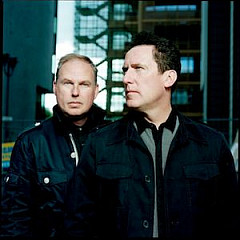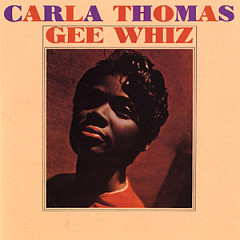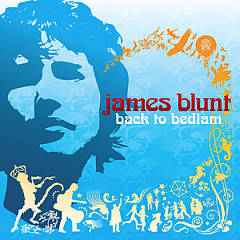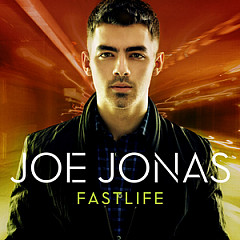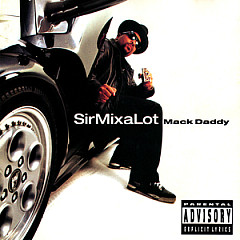Skinnamarinky Doo,
I Love You!
 Generations of kids have grown up singing "Skinnamarink" with the Canadian trio Sharon, Lois & Bram. During their 41-year career, the beloved children's entertainers have invited us along on musical adventures with their silent mascot, Elephant, on Sharon, Lois & Bram's Elephant Show and Skinnamarink TV. They've released dozens of albums and compilations full of family-friendly folk songs and performed thousands of concerts. And it all started with a lucky accident.
Generations of kids have grown up singing "Skinnamarink" with the Canadian trio Sharon, Lois & Bram. During their 41-year career, the beloved children's entertainers have invited us along on musical adventures with their silent mascot, Elephant, on Sharon, Lois & Bram's Elephant Show and Skinnamarink TV. They've released dozens of albums and compilations full of family-friendly folk songs and performed thousands of concerts. And it all started with a lucky accident.Sharon Hampson, Lois Lilienstein, and Bram Morrison never intended to record more than one album together. Sharon and Bram, veterans of the Toronto folk scene, and Lois, a classically-trained musician, were all members of the Mariposa In The Schools program, which introduced tradition-based performing arts to students throughout Ontario. When a Mariposa group album fell through, the trio decided to give their own project a shot - despite never having sung together before. After their debut, One Elephant, Deux Elephants, was released in 1978, they headed back to their individual singing careers. But not for long. The album, containing classics like "She'll Be Coming Round the Mountain," "Five Little Monkeys," and the little-known "Skinnamarink," was a smash hit in their native Canada, where they were praised for their unique blend of folk, country, jazz and rock 'n roll. It was clear Sharon, Lois & Bram were here to stay.
After Lois, who semi-retired from the group after the death of her husband, died of cancer in 2015, Sharon and Bram forged ahead as a duo. In 2019, they announced their retirement from touring - but not from singing. In addition to releasing a number of singles by Sharon's late husband, folk singer Joe Hampson, they turned their seminal tune "Skinnamarink" into a children's book. Sharon and Bram spoke with Songfacts just after wrapping up their farewell tour. They shared the stories behind their new singles and their thoughts on entertaining versus educating children.
Bram: It was very enthusiastic, I tell you.
Sharon: The audience sang from the first note of the first song to the last note of the last song. They were with us 1000 percent, and it was wonderful, it was lovely.
Bram: And a bit emotional.
Sharon: Yeah, for sure. I said at one point, "I promised that I wasn't going to cry but I think I might break that promise."
Songfacts: Oh you would have to.
Sharon: But we're not going to stop singing - it's not in our nature. But we're going to stop touring, so we're not going to travel extensively. But one never knows, there are always surprises coming up. We have a new book coming out in September which is based on our song "Skinnamarink." We're also doing promotions for that as well, so there will be something related to that, and other things along the way. But the hard part is touring, which we needed to get rid of.
Bram: Like airports for example.
Sharon: Traveling wasn't so hard, but as I'm sure you know, Amanda, traveling is great when you get to where you're going, but getting there, it takes time and energy and frustration and all of that stuff.
Bram: Well, I remember reading something years ago, a quote from Ray Charles - somebody said, "How does it feel to be rich and famous?" and he said, "I don't make this money from doing my music. I do my music for nothing. It's all the traveling and talking to all those people..."
Songfacts: I believe it.
Sharon: We also say that when we have done a meet and greet after a show, it used to be the children and their families. Often who we're meeting now are the parents who grew up on us and they have returned with their children, which we love, and it's very touching to do that, but it takes a lot of energy to do that. And, you know, when you have an encounter with a little person, it takes time and energy. So, we love the talking, but it's part of what tires you in the long run.
Bram: Even though we may do one show in a day, and then we have a meet and greet afterwards, sometimes that can extend for a long time, and you need to be personable and up and ready to have conversations with people who are eager to meet you, and you're eager to meet them too. But, at the end of a day like that, I say we've just done two shows!
Songfacts: Exactly.
Bram: I mean we choose to because we want to.
Sharon: We hear wonderful stories from people about how much we've meant to them.
Bram: Yeah, but it takes it out of us and the older we get, the more it takes.
Sharon: Yeah, but lucky us we get to work on something that we thoroughly enjoy and have had a career doing something that we love. We do enjoy the company of children, so we don't have to pretend around those kinds of things.
Songfacts: You just mentioned being able to do this as a career. I was really surprised to learn that Sharon, Lois, & Bram was supposed to be a one-time collaboration that just turned into all this. So, what was the intention going into that first album?
 Sharon: The thing is we all performed individually doing music for children, so we had that shared experience - we were friends and colleagues. And we were in an organization called Mariposa In The Schools, and the organization was going to make a record with all the members. They were all performers who went into schools like us and did one-off things with classrooms of children, and that project got delayed and in the process of delaying it, the fellow who was going to produce it said to us, "Well, why don't we do a record?" And that's how our first record was born. We had never sung a word together, nothing, before we started preparing for that record. It was a very unusual history.
Sharon: The thing is we all performed individually doing music for children, so we had that shared experience - we were friends and colleagues. And we were in an organization called Mariposa In The Schools, and the organization was going to make a record with all the members. They were all performers who went into schools like us and did one-off things with classrooms of children, and that project got delayed and in the process of delaying it, the fellow who was going to produce it said to us, "Well, why don't we do a record?" And that's how our first record was born. We had never sung a word together, nothing, before we started preparing for that record. It was a very unusual history.Bram: Well, it's backwards from the way things usually work. Usually, it's like, Hey, let's get together and play in my father's garage or my mother's kitchen or whatever. Then you go down the street and play at the local restaurant or whatever, and you get what you think is good, and you say, "Okay, let's make a record." But this was backwards. This was, "Let's make a record and then let's see what happens," when we had no idea what was going to happen.
Sharon: We went back to our individual careers for a little while, not for very long, because the record – One Elephant, Deux Elephants - really launched the career. There was great interest in the record, and we got exposure from the CBC, which is the Canadian Broadcasting Corporation, with radio across the country playing our songs. Even at that point, it was pretty darn exciting, and we were learning every step of the way about how to be a record company and how to be a performing artist group, how to tour. How to do all of that was a very steep learning curve. But we didn't know that it was going to go on for all this time, and so we consider ourselves very fortunate to do something we have loved.
Bram: I must say that as we've gotten older, a different stage in our lives, the fact that not only have we had this history of making music that we like that appeals to a broad generation range that kids and parents and grandparents can enjoy together, which is wonderful, but also that after we're gone, that legacy we leave will live on. We know from conversations with people that they are passing it along, and that it will go on for I don't know how many future generations, but some.
Sharon: Yeah, absolutely. It's a lovely thing for us.
Songfacts: After the initial success, what were your conversations like moving forward as far as your philosophy of doing this kind of music?
Bram: Well, we found ourselves quite congruent right from the beginning. I mean, that's one of the things that brought us together and kept us together. First of all, we wanted only to sing songs and make music that we liked and entertained us and challenged us. That was number one. Then, we wanted to have songs that would appeal across generationally, that would appeal to the children, inviting them to sing right away, and with their parents and grandparents.
The songs would also appeal to the older generation, and it was real music - the people playing it were real musicians, and the best. We always had the best musicians that we possibly could so that along with being music for children, it was music for the whole family, and that was important. The other important thing was that there was nothing overtly teachy about it. We knew that there was learning all the time while people were listening and participating in our music, but that was not the reason that we chose the song - we chose the song because it was a good song and if they learned, that's great. So, our motivations were a little bit different from a lot of people who were recording and performing for children, who thought, Let's make up a song about tying your shoelaces, or...
Sharon: Being nice to each other...
Bram: Yeah. Or let's make up a bullying song.
Sharon: We felt that the "being nice to each other" message could probably most effectively be transmitted by the way we treated each other, and that's what the audiences saw on television and in performances of ours.
Bram: Lois was the only trained musician in the trio. She had a music degree from the University of Michigan, and she was a pianist. And also, she was a jazz baby.
Sharon: She brought that repertoire to us.
Bram: She loved the American Songbook. She was a Broadway show kind of person, and we [gestures to Sharon] were folkies, and so there was a mixture. And I think that mixture was one of the things that brought us to the kind of prominence that we did. We weren't just regular "Michael Row Your Boat Ashore" kind of folkies. There's nothing wrong with that song, but she brought in "Ja-Da Ja-Da" and all kinds of swingy stuff.
Bram: Well, he was part of the group right from the very beginning and he produced the first four of our recordings, and they were seminally important. He had experience that we didn't have. We had the repertoire, and as it turns out, we had the right approach and taste, and he had the experience in recording which we did not have. In that respect, I think it was a terrific collaboration.
Now, the reason that we were three and not four is because he had ambitions that he wanted to use his expertise and knowledge to work with and produce other people, which was perfectly legit. But we thought, We've got something good going for us here, we do not want to dilute our own efforts with other people. We've got something and we want to use it to work together, the three of us, and Bill said, "Well, I think I need to leave and go off and find my own way." That's what happened.
Sharon: He was very important, but we also evolved. I mean, we were a great collaboration because we all had different experiences and different ideas, and our career has been marked by 40 years of wonderful collaboration. We've worked with terrific musicians and arrangers...
Bram: ...and choreographers, which is funny for me because I'm a non-dancer.
Sharon: When you're working in an environment where collaboration is at the center of it, it's a very rich experience and I think in recordings, in television, in live performances that's always been the way, and that's been a great resource to us and it brought richness to everything we did, and great friendships as well. At that last concert the other day, our keyboard player and bandleader who has been with us for a very long time, he said, "This is my 1,350th show."
Songfacts: Oh wow.
Sharon: We've done more than that obviously.
Songfacts: How did the idea for The Elephant Show come about?
So, two young men approached us and they were with a company called Cambium, and they were two young guys, no children, but they had nieces and nephews, so they knew about us and our music. We did a special with them that was quite charming actually, and that special led into The Elephant Show. From day one, the elephant had a prominent place with us - we eventually named our company Elephant Records, and we named the first record One Elephant, Deux Elephants.
We decided to sing "One Elephant, Deux Elephants" in our show and also we decided to sing "Skinnamarink" at the end of our show. At the time there was a company called The Toronto Dance Theatre that was doing a production of Babar with a lot of elephant costumes. So, we borrowed a costume from them and used the elephant in the show, and it was so successful. It wasn't a clever marketing decision.
Bram: It was an accident.
Sharon: It was an accident, exactly, but it was a good accident. So we continued to have an elephant when we could in the show, and when we started putting together ideas for the TV show, Elephant was going to have a prominent place in the show, and calling it Sharon, Lois, & Bram's Elephant Show just seemed to make sense. A lot of the good things that have happened for us over the years, as Bram says, were lucky accidents.
Songfacts: I always associated "Skinnamarink" with The Elephant Show, and I actually thought it was a Sharon, Lois & Bram original.
Sharon: We didn't know we were going to use it forever and ever at every show at the end of everything we've ever done. Every TV show, every concert, every public appearance, we sing "Skinnamarink." People do associate it with us but there are lots of people in the world who know the song and don't know where it came from, and that's fine too.
We don't write songs - we've never written any songs. We're not songwriters, we're great collectors - we know how to find good music. We've recorded recently a number of songs that are now out, and several more are coming and we're very excited about all of that. They happen to be songs that were written by my husband which Bram suggested that we should record.
Bram: Joe Hampson was many, many things, and one of them was he was a terrific songwriter, and he was a member of the Canadian folk group called the Travellers. They started originally in the '50s, before Joe, but Joe was a member for 30 years or something, and he was a great songwriter. He wrote some songs that were terrific, a lot of which were recorded by the Travellers but had been kind of forgotten over the years. We thought that they were too darn good to be forgotten, so we said, "Let's take them, let's give them our input, our musical experience, let's bring them back." So that's what we've done, and I think it's one of the best things we've ever done.
Sharon: We hadn't recorded in a long time, and I hadn't recorded in a long time, so it was a bit exciting to get back into the recording studio to do new music: "The Colour Song," "Talk About Peace," "The Hug Song," and "Different." I think they're all streaming now... I say that but I haven't a clue what that really means, but you do.
Bram: You call me later and I'll explain it to you. [laughs]
Songfacts: They are. I was listening to them, so I was able to find them.
Sharon: And I hope you enjoyed them.
Songfacts: Oh yes. I actually wanted to talk more about those new songs. Can you tell me what was important about each song and why you chose it?
Bram: The first one we did was "The Colour Song" and the reason it appealed particularly to me is because it's a word song, and it's a tricky word song. It's a song about homonyms - words that sound the same but mean different things - and I've always found that very entertaining and amusing, and here it was right in the song that already existed for quite a long time, and I said, "Gee, I'd like to record that." Wasn't that the first thing we did Sharon?
Sharon: Yes, it was, absolutely, the first thing. And my daughter Randi, who's been managing us, added a rainbow verse. "The Colour Song" is about different colors and words for them - homonyms like red and read. You know, I read the book, the book was the color red. That kind of thing. Very clever. We recorded it and put it into the show, and we were astounded at how immediately the children took to it and sang it with us. It's so wonderful. So, once we recorded that, it led to, what else are we going to record?
 Bram: Then "The Hug Song" was done by the Travellers, and Sharon did it actually on one or two of our television episodes. It's a very sweet song with a good personal message about physical contact, something that needs a little more discussion these days. We put it to a little slightly livelier beat, but the same feeling. And people sing it with us and they do it when we say, "everybody hug."
Bram: Then "The Hug Song" was done by the Travellers, and Sharon did it actually on one or two of our television episodes. It's a very sweet song with a good personal message about physical contact, something that needs a little more discussion these days. We put it to a little slightly livelier beat, but the same feeling. And people sing it with us and they do it when we say, "everybody hug."Sharon: They do! It's so sweet, the audience. We wait, and we say, "We're watching you, don't leave anybody out, everybody hug," and it's a sweet moment.
Bram: And then there was "Talk About Peace." I knew it was an important song, we had sung it before. We did it in one of the episodes of The Elephant Show.
Sharon: We sang it when we were in the Caribana Parade - the Caribbean event - and we sang it for that.
Bram: We thought the message was very important, and we decided to have another crack at it. We started doing it in the show, and I was a little dubious about whether it might be a little bit beyond the younger children who were in the audience, that some of the adults might think we were being too political, but it turns out that people loved it, and still do. People come to us and say, "We're so glad to hear you singing that song now. It's so important to what's going on in the world today, and to plant those kinds of ideas in the kids' minds when they're young, it's a really good thing."
Sharon: We're very happy about that. Then after "Talk About Peace," we did "Different" - how could anything be wrong with being different. Talk about something that's relevant in our society in this day and age, that's the song.
Bram: That's a song that we did a previous recording of some years back with Lois, and it was done in conjunction with an educational campaign having to do with asthma. Joe also wrote a song about breathing which we have not done, but the other one was "Different" - how can anything be wrong with being different, and that has universal application when you sing it. It could be different in any way that you can possibly imagine: in looks, in function, in health, in anything at all. And, people again say that's a great song and it's needed today. The thing is though, that first of all, it has to be a good song.
Sharon: Of course. We better start with good songs, and hopefully that's what we do. We don't sing songs that are just to learn lessons, to teach lessons. We know that the songs we sing often do, but that's not the goal. That's not why we choose them. We choose them because they've got to be good songs.
Songfacts: Are there any other songs that you always wanted to record, but haven't been able to yet?
Sharon: Nothing springs to mind. First of all, we weren't really thinking about recording. It wasn't on the agenda, just because we had done so much and it didn't occur to us until my daughter started prepping us to do some recording. Then once we got excited, it kind of ballooned. One song led to another. Now, we're feeling really satisfied at this point. Whether there's something else out there, I don't know.
Bram: This is not really an answer to that question, but it puts me in mind of something else. Right from the very beginning we chose, consciously, not to choose songs that were going to age badly, that were trendy. We did not want to be part of a trend, so we picked what we think of as classics, that if it appealed to somebody 100 years ago, it's still going to appeal to kids today, and my example of that always is "She'll Be Coming Round the Mountain." If you're three years old and you hear "she'll be coming around the mountain, toot toot," and you'd never heard it before, that's a brand new song.
Sharon: Every year there's a new crop of 3-year-olds who can hear it for the first time.
Songfacts: Oh sure. It's also really cool to see adults who grew up listening to your music showing up to your concerts, even when they don't have kids.
Bram: That's absolutely true. We have adults who are fans, partly because they've brought their children to our concerts, but there are also a lot of fans who were children and have grown up and have remained fans even as they pass the songs on to their kids. Or in some cases, some intensely strong fans who are adults and who remain fans, not because they have children, but because they still love us - and that's kind of unusual and extremely surprising and pleasing.
Sharon: The thing is, our audiences have always been family audiences. That's not unique to this time period, that's always been the case. We've always really valued providing a show or a record or a TV performance that appeals to the whole family. We wouldn't want kids to watch The Elephant Show, and then have the parents run screaming from the room - that would happen with some other children's programs, not with ours.
They stay with us. They tell us when they drop their kids at school, they continue to listen to the music on their way to work. So, we used good musicians, good arrangers. We spent time and money on all of those projects. We thought about what we could do to make them the best they could be, not how we could economize, and I think that worked well for us.
Songfacts: Well, my husband sings "Skinnamarink" to me, and does the hand motions and everything.
Sharon: I think that is so lovely.
 Bram: It is lovely. And, you know that song has traveled so much because of us. Do you know the tradition at weddings where if a table full of people decide they want to see the bride and groom kiss, they have to decide on a song that contains the word "love," and sing it? Well, "Skinnamarink" has become part of the repertoire.
Bram: It is lovely. And, you know that song has traveled so much because of us. Do you know the tradition at weddings where if a table full of people decide they want to see the bride and groom kiss, they have to decide on a song that contains the word "love," and sing it? Well, "Skinnamarink" has become part of the repertoire.Sharon: This is just a little sidebar, but Bram has a son and daughter-in-law who have a charity that they started a number of years ago, and it operates in Africa. It started in Rwanda, and has spread. His daughter-in-law, Rita, teaches "Skinnamarink" in every village that she goes to now. We've done the same and our kids have done the same, so we've tried to spread that word of that song about people loving each other. It's a wonderful message.
Bram: To continue that, I've spent a lot of time in Mexico over the last number of years, and I made a translation of that song into Spanish, and I've sung it with children down in Mexico, but it's not "Skinnamarink" there, it's "Eskinnamarink" because of the translation.
Songfacts: I wanted to talk a bit more about the Skinnamarink book that's coming out. I know you added a little bit to the song lyrics.
Bram: More than a little. We realized when Penguin came to us and said they'd like to make a book of that song and we thought, Well, it's a really short song. There isn't enough to make a full book's worth, it needs more. And Randi Hampson, who is Sharon's daughter, who is a multi-talented person who has been doing some serious management for us over the last couple of years, said, "Let me see if I can extend the song in a meaningful way."
So she wrote a slow introduction and added a number of verses to it that talked about people loving each other in different ways and different places and different seasons and different modes, and has expanded the song so that it is a full-size song and is worthy of a book. It has turned out to be a marvel because the song is great and the illustrations just make it take off. It is illustrated by Qin Leng, who is a lovely illustrator and she has done, to my mind, almost like a Where's Waldo? treatment of our book. That is, every page is full of so many different kinds of people and different ethnic garbs and skin colors and sexual orientation. You could go through it again and again and again, and find something different.
Sharon: Yeah, little surprises in there that give the book its charm. It's charming and it's been reviewed a couple of times now - it's available for pre-order online, and it has the most stunning reviews, and we're just thrilled. It's a beautiful book with beautiful messages and I think that we'll have a vast appeal. Tomorrow, there's a little promotion tour around that - we're going to be reading it to dogs.
Songfacts: Oh my... that sounds great!
Sharon: Isn't that a riot? There's a promotion between the FCCA here in Toronto and Word on the Street, which is a big event that we have every fall launching all kinds of new books. It's on the street, there are booths, and it's fabulous. It's a collaboration to promote reading for children.
August 22, 2019
Find the Skinnamarink book on Amazon
For more on Sharon & Bram, visit sharonloisbram.com
More Song Writing


